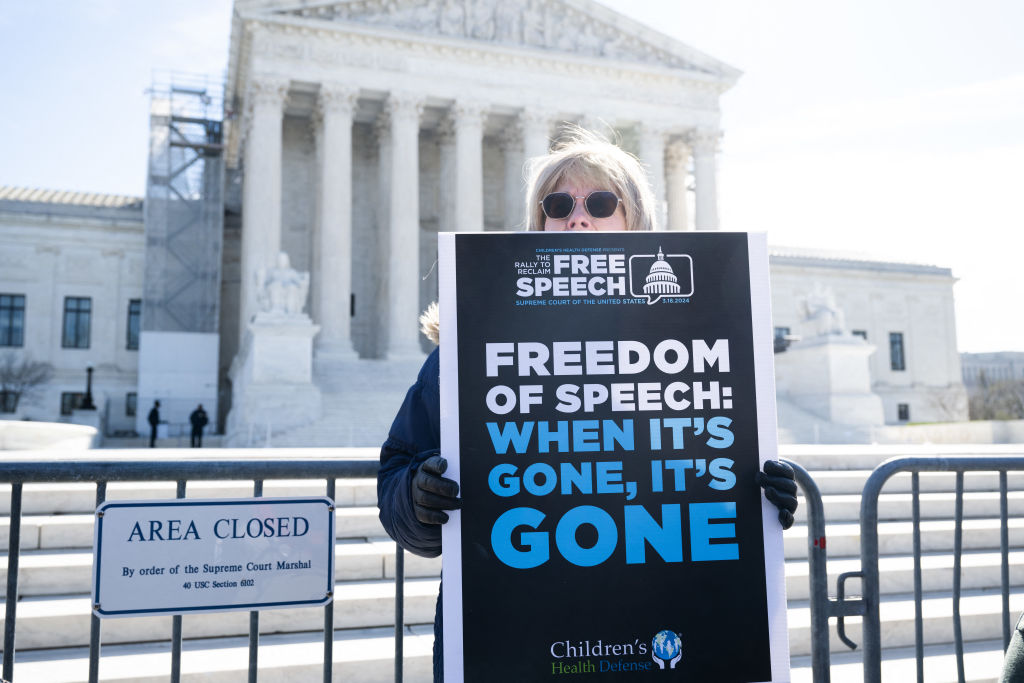Those of us who defend freedom of speech have unfortunately become used to hysterical headlines from the New York Times decrying the problem of the First Amendment.
Some of these headlines rely on straw man arguments to make their case, such as “Free Speech Is Killing Us” by Andrew Marantz in 2019. And who could forget Ulrich Baer’s 2017 article, “What ‘Snowflakes’ Get Right About Free Speech”, which argued that people who agree with him should have more control over speech on campus? (Perhaps the least surprising position a university administrator has ever taken.) Or Lisa Feldman Barrett’s 2017 article, “When Is Speech Violence?”, which argues that speech can become violence when it’s… stressful? If that’s the case, then what’s the First Amendment for?
Professor Tim Wu’s piece this week, “The First Amendment Is Out of Control”, was in this troubling tradition of free-speech catastrophising. As he notes at the beginning of the article, “[n]early any law that has to do with the movement of information can be attacked in the name of the First Amendment.” Well, sure. Fear of government power over the free flow of information was a big part of the reason why “Congress shall make no law.”
Indeed, that’s also a big part of why the founders included “the press” in the First Amendment. And by “the press”, they didn’t mean institutional journalism (although the First Amendment clearly protects that as well). They meant the literal biggest information-moving technology of the day: the printing press.
Wu then moves into a criticism of the Supreme Court’s decision in Moody v. NetChoice, the case about Texas and Florida laws regulating social media moderation. In his view, the Court presumed “free speech protections apply to a tech company’s ‘curation’ of content, even when that curation involves no human judgment.” But there were humans involved. There’s substantial daylight between the concept of machine-aided curation and curation that involves no human judgement. This feels like another straw man, because the key rationale motivating the Texas law Wu has championed is political bias in content moderation — bias that was, at some stage, introduced by a human being exercising a political judgement.
Meanwhile, the risk of empowering a government to go after social media sites couldn’t be higher. Wu states that social media regulations such as those in Florida and Texas are “legitimate tool[s] with which democratic governments can stand up to private power”. But the power of the government is exactly what the First Amendment is supposed to limit — and for good reason. If we curtail the First Amendment to make it easier for governments to go after private actors, those governments will not stop at corporations or machines. They’ll go after individuals, too.
The piece then discusses First Amendment proponents’ concerns about the recent law giving Biden power not only to ban TikTok, but also other companies with even indirect connections to people or entities in “foreign adversary countries”. While it is true that China poses some potentially grave threats to the private data of TikTok users, why did so few congressional records offer strong evidence to that end? If the government wants such an extraordinary power, it needs to prove its concerns — ideally in the legislative record — and in court. We should expect nothing less from defenders of civil liberties.
The article concludes by talking about potential First Amendment arguments that will be made against the regulation of artificial intelligence, as if not allowing the government to have that power over the development of such a crucial technology is necessarily playing to the interests of corporate America. This is a wild oversimplification. As Greg testified before Congress several months ago, the most boring and predictable play in the regulatory process is when corporations try to get regulated on their own terms, in order to create a legal environment that is favourable to them and hostile to their upstart competitors. This is the game that we believe the current AI powerhouses are playing in Washington, an argument that Marc Andreessen has also made.
The First Amendment is there to limit the harm that can be caused by the prejudices of those who wield power — the power to tell us what we can say, what we can know, and what information can be shared. The open exchange of opinion and information is one of the defining characteristics of a free society. While it doubtless has costs, giving fallible government officials too much power over this right poses far graver threats.











Join the discussion
Join like minded readers that support our journalism by becoming a paid subscriber
To join the discussion in the comments, become a paid subscriber.
Join like minded readers that support our journalism, read unlimited articles and enjoy other subscriber-only benefits.
Subscribe